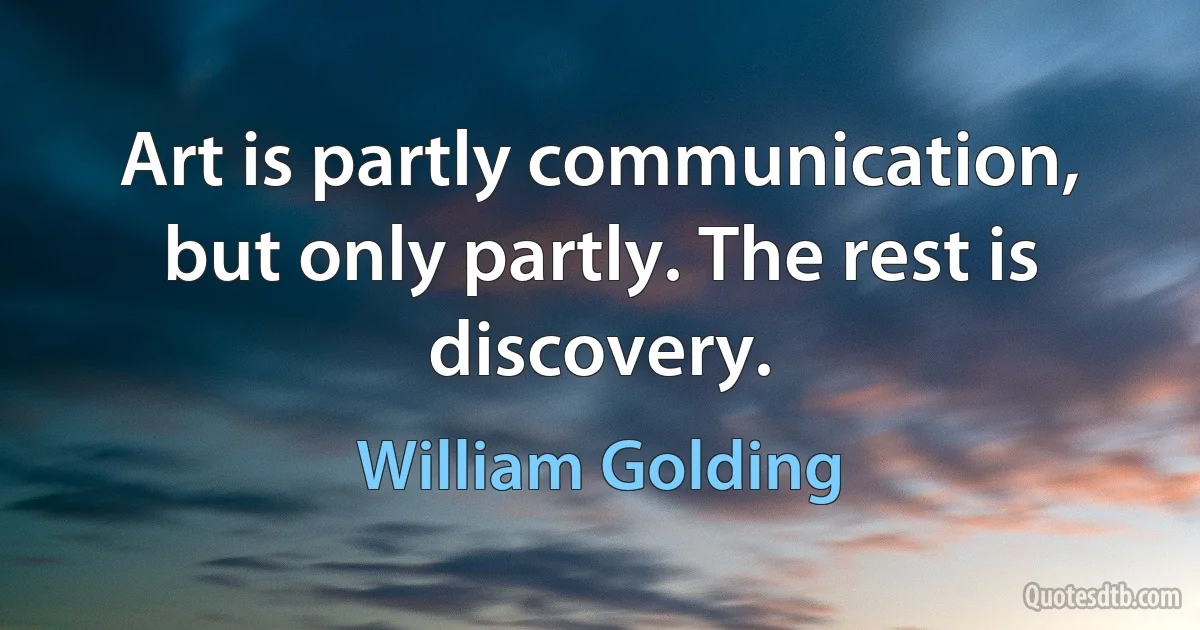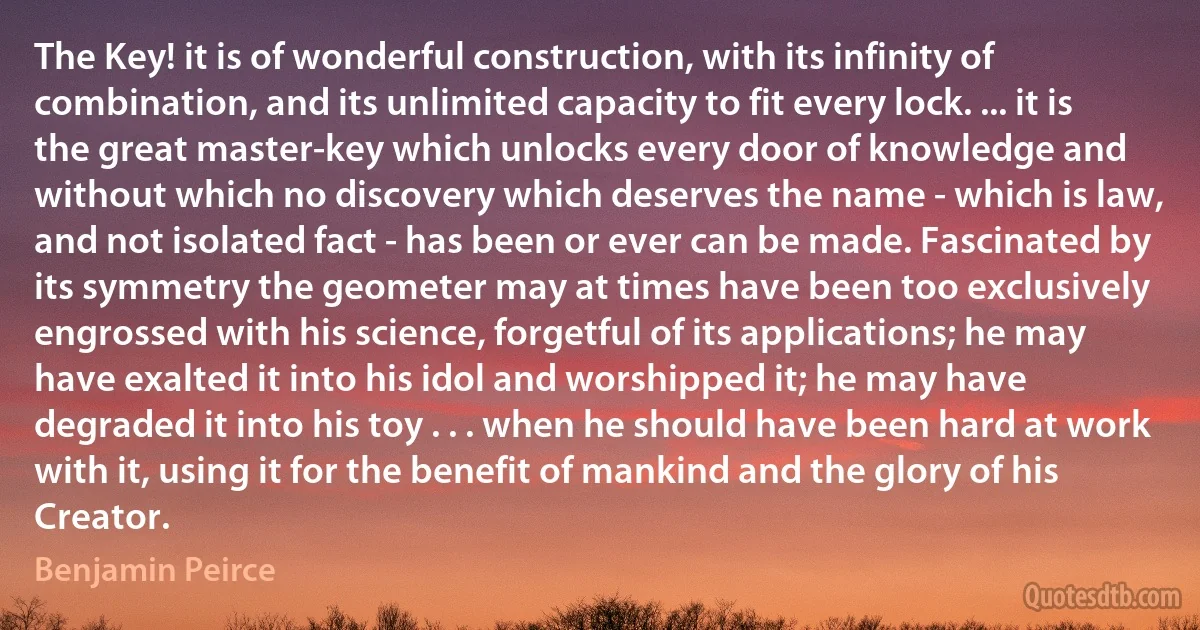Discovery Quotes - page 15
In the history of madness, two events signal this change with singular clarity: in 1657, the founding of the Hôpital Général, and the Great Confinement of the poor; and in 1794, the liberation of the mad in chains at Bicêtre. Between these two singular and symmetrical events, something happened, whose ambiguity has perplexed historians of medicine: blind repression in an absolutist regime, according to some, and, according to others, the progressive discovery, by science and philanthropy, of madness in its positive truth. In fact, beneath these reversible meanings, a structure was taking shape, which did not undo that ambiguity but was decisive for it. This structure explains the passage from the medieval and humanist experience of madness to the experience that is our own, which confines madness in mental illness.

Michel Foucault
Many Christians base the belief of a soul and God upon the Bible. Strictly speaking, there is no such book. To make the Bible, sixty-six books are bound into one volume. These books are written by many people at different times, and no one knows the time or the identity of any author. Some of the books were written by several authors at various times. These books contain all sorts of contradictory concepts of life and morals and the origin of things. Between the first and the last nearly a thousand years intervened, a longer time than has passed since the discovery of America by Columbus.

Clarence Darrow
I strongly feel that, if we are successful, our program will mark the beginning of a renaissance for manned space flight. This might even be similar to that wonderful time period between 1908 and 1912 when the world went from a total of ten airplane pilots to hundreds of airplane types and thousands of pilots in 39 countries. We need affordable space travel to inspire our youth, to let them know that they can experience their dreams, can set significant goals and be in a position to lead all of us to future progress in exploration, discovery and fun. Thanks to the X PRIZE [Foundation] for the inspiration.

Burt Rutan
Why should men travel, he asked himself bitterly, across the gulf of stars at such expense and risk-merely to land on a spinning slag heap? For the same reason, he knew, that they had once struggled to reach Everest and the Poles and the far places of the Earth-for the excitement of the body that was adventure, and the more enduring excitement of the mind that was discovery.

Arthur C. Clarke
Invention, it must be humbly admitted, does not consist in creating out of void, but out of chaos; the materials must, in the first place, be afforded: it can give form to dark, shapeless substances, but cannot bring into being the substance itself. In all matters of discovery and invention, even of those that appertain to the imagination, we are continually reminded of the story of Columbus and his egg. Invention consists in the capacity of seizing on the capabilities of a subject, and in the power of moulding and fashioning ideas suggested to it.

Mary Shelley
Through spontaneity we are re-formed into ourselves. It creates an explosion that for the moment frees us from handed-down frames of reference, memory choked with old facts and information and undigested theories and techniques of other people's findings. Spontaneity is the moment of personal freedom when we are faced with reality, and see it, explore it and act accordingly. In this reality the bits and pieces of ourselves function as an organic whole. It is the time of discovery, of experiencing, of creative expression.

Viola Spolin
That happens in the world, which we often witness in a public debate. Each of the speakers expresses himself imperfectly: no one of them hears much that another says, such is the preoccupation of mind of each; and the audience, who have only to hear and not to speak, judge very wisely and superiorly how wrongheaded and unskilful is each of the debaters to his own affair. Great men or men of great gifts you shall easily find, but symmetrical men never. When I meet a pure intellectual force, or a generosity of affection, I believe, here then is man; and am presently mortified by the discovery, that this individual is no more available to his own or to the general ends, than his companions; because the power which drew my respect, is not supported by the total symphony of his talents.

Ralph Waldo Emerson
Every act involves a discovery of finite beings and seeing them as such, one understands ever better the reality of God's presence, since finiteness by itself would be insufficient. God is the continuous miracle. It may be said that if it is continuous it is no longer a miracle. But miracle there is, although it does not consist in any outstanding or exceptional event. The miracle is that without God all finite things and their mutual relationships fade away into abstractions – whereas with God, they live in our spirit, in a conscious relationship. The essential construction of reality lies in this and not in the activism of the materialists who have little awareness of the intimate religious relationship.

Aldo Capitini



